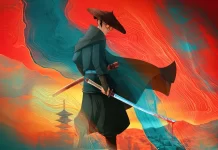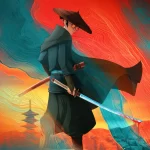A sci-fi/fantasy or dystopian project has won the drama series Emmy for the past five years in a row: Namely, HBO’s “Game of Thrones” has won four times, except for 2017 when Hulu’s “The Handmaid’s Tale” took home the grand prize.
This year, return nominees “The Handmaid’s Tale” and Netflix’s “Stranger Things” are joined on the ballot by the live-action “Star Wars” Disney Plus series “The Mandalorian.” That the space Western featuring Baby Yoda is up for one of the top statues builds on an apparent shift in voter tastes that has in recent years begun to bestow major awards recognition on genre shows.
“I always credit ‘Game of Thrones’ [for the shift] more than anything,” says “Stranger Things” co-creator and co-showrunner Matt Duffer. “That changed the TV landscape in so many ways and changed the awards landscape. I think if our show would have come out — if it had even been able to exist in a pre-‘Game of Thrones’ world — I doubt it would have been recognized. I always think about ‘Battlestar Galactica,’ which was never nominated for best drama. If it were coming out now, it would probably be nominated a number of times for drama. I think that dam has been broken, and more and more genre shows will keep getting nominated.”
Ross Duffer, who makes up the other half of the Duffer brothers’ team, notes that even though “Star Wars” and “E.T.” got Oscar nominations back in the day, they were “really the exception to the rule.” And historically the Television Academy equally seemed to shun genre fare, too. In the modern era, “Game of Thrones’” repeat wins mean that “you’re seeing it almost every year that something that’s genre is being nominated.”
“The Handmaid’s Tale” showrunner Bruce Miller attributes the shift in TV Academy recognition partly to the age and taste of incoming voters who grew up watching sci-fi and are more comfortable with how such programming can help process current events.
“As the world gets more complicated, sci-fi becomes a better medium for communicating what’s happening in the world. The world is so complicated [that] creating another world allows you to simply look at some of the issues, as opposed to looking them all at once in our real world,” he says.
Miller admits he is “sorry about” the unfortunate parallels in the patriarchal world he is writing to what is going on in America today, from mother-children separation to women having lost all of their rights in general, even the right to read.
“I wish I was writing for a show that was completely irrelevant,” says Miller. “That’d be much nicer than this situation. It is odd to be writing a show that seems to be a little ahead of what’s happening in the world. But really, it’s a tribute to the world Margaret Atwood set up. Really, we’ve been following in her footsteps. So I think her prescience is really the prescience that led us to being a little ahead of what’s happening politically.”
Finding a high-concept way to comment on real-world issues and trends provides escapism and also creates conversation, which also can raise voters’ awareness of and interest in these shows.
“It’s kind of trippy, but we just kept writing and leaning into” the Russian threat in the third season of “Stranger Things,” says Matt Duffer. “It wasn’t intended to be so serious; it was supposed to be kind of a silly ’80s trope, and a throwback to some of the action films like ‘Red Dawn’ from the ’80s. That was the tone we hadn’t done before that we wanted to do.”



















![[Book Review] The Blade Itself (The First Law Trilogy) by Joe Abercrombie](https://bendthekneegot.com/wp-content/uploads/2018/01/1516047103_maxresdefault-218x150.jpg)
















